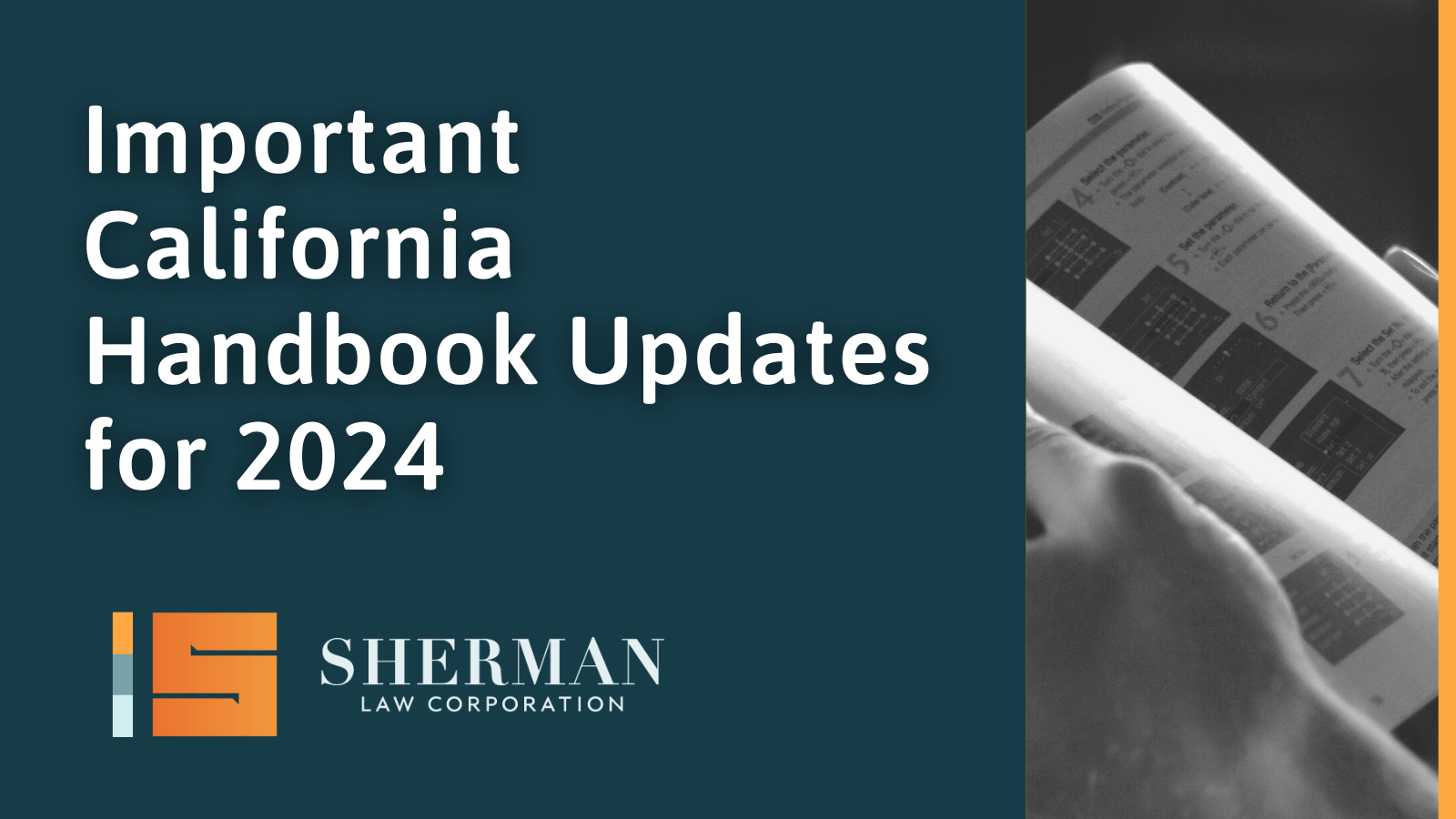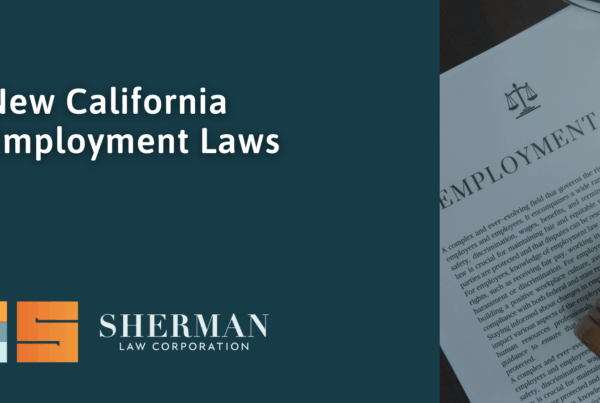
Now that the new year is here, it’s important for California employers to be thinking about ways to update their employee handbooks for 2024 to remain compliant with California law – particularly since there are several new employment laws.
From experienced employment attorney Lisa Sherman, here’s what to keep in mind.
Leave Policies
Paid Sick Leave
In California, employees must now receive 5 days (or 40 hours) of paid sick leave per year, if your company is not subject to a local paid sick leave law.
However, employers can still choose the lump sum or the accrual method.
If employers choose the accrual method, the following terms apply:
- Employees still accrue paid sick leave at a rate of 1 hour per 30 hours worked;
or
- Employees must accrue no less than 5 days (or 40 hours) by the 200th day of employment, each calendar year, or in a 12-month period
For employers who choose the lump sum method, they do not need to allow for any carryover if the full amount of leave is received at the beginning of each year of employment.
For those who choose an accrual method, on the other hand, they must allow employees to carryover at 10 days (or 80 hours).
However, employers can restrict the use of accrued paid sick leave to 5 days (or 40 hours) for each year of employment.
Bereavement Leave
For employers with five or more employees, bereavement leave policies must now include the option for unpaid leave for a “reproductive loss event” for employees who have worked for the employer for at least 30 days.
This could include the following:
- Miscarriage
- Stillbirth
- Failed adoption or surrogacy
- Unsuccessful assisted reproduction
Pregnancy Accommodations
Similarly, California employers should double-check their pregnancy accommodations to ensure compliance with the federal Pregnant Workers Fairness Act.
For employers with 15 or more employees, the Act requires accommodations for pregnant employees that include:
- Additional break time (for the restroom, eating, and rest)
- Closer parking
- Flexible hours
- Ability to sit or drink water
- Appropriately sized uniforms/safety apparel
- Leave after childbirth
Non-Compete or Non-Solicitation Clauses
Going forward, employers should not include non-compete provisions – including non-solicitation of customer or employee provisions.
If an employer previously required employees (current or former) to sign a non-compete clause after January 1, 2022, the employer must notify said employees in writing by February 14, 2024 that the non-compete clause is void.
Confidentiality and Social Media Policies
Employers should reasses confidentiality and social media policies to ensure compliance with the National Labor Relations Act.
For example, no policies should include language regulating employees’ off-duty conduct (as long as it is lawful). It may even be a good idea to include language that specifically states that the handbook does not intend to limit such lawful off-duty conduct.
Workplace Violence Prevention Plans and Training
By July 1, 2024, all California employers must implement a workplace violence prevention program that includes a training program.
Here’s what must be included in the plan:
- Designation of a responsible individual;
- Implementation of a process to engage employees in the development and execution of the plan;
- Employers’ methods to coordinate the plan with employees;
- Establishment of procedures for receiving and addressing reports of workplace violence, along with the prevention of retaliation;
- Communication guidelines with employees on workplace violence, reporting incidents or concerns, and effective measures for emergency alerts and assistance locations;
- Identification and assessment procedures for workplace violence hazards and concerns;
- Response and investigation procedures;
- Plan review protocols, involving employees and authorized representatives.
Why is a California employee handbook necessary?
Employee handbooks, written policies, procedures, and agreements constitute an employment contract that sets forth the terms and conditions of employment.
If any of these documents contain terms that are unlawful, not tailored to your Company’s actual practices, or are not consistently enforced, then the written documents can be used against the Company to not only prove liability, but also to seek punitive damages.
Contact Sherman Law Corporation to get started on your new Employee Handbook
For more information on new California laws and how to ensure your handbook is compliant, feel free to contact Lisa Sherman at lisa@sherm-law.com or (323) 488-2087.




